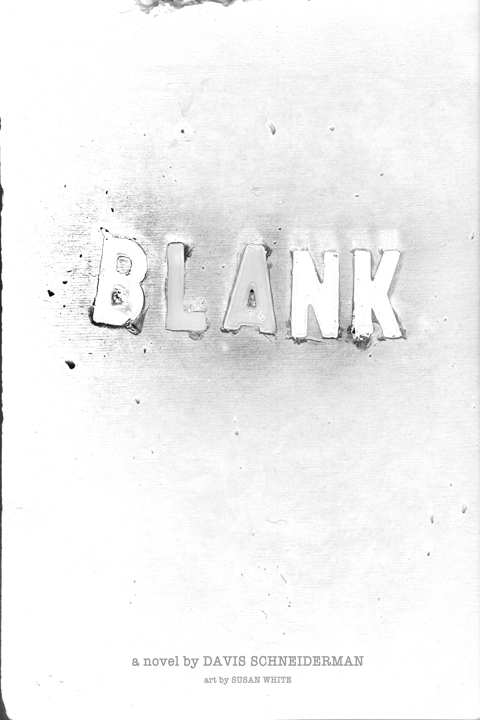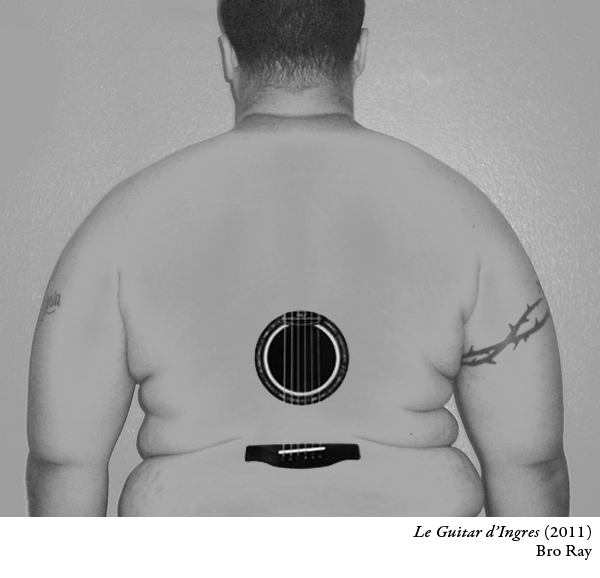SMILES YOU CAN’T STOP: Win a Free Book
 So Ken Baumann (author of the forthcoming Solip from Tyrant Books in 2012; congrats Ken!) accidentally bought two copies of Jason Bredle’s heart-sifting and twisting Smiles of the Unstoppable. When I offered to refund the extra money, he generously suggested I give the extra copy away on HTMLGIANT, which brings us to the pumpkin below this paragraph. See, I wanted to do a caption contest where I posted a picture of Ken smiling, but for some reason I found this picture of a pumpkin, which was actually even better than a picture of Ken getting Lasik surgery.
So Ken Baumann (author of the forthcoming Solip from Tyrant Books in 2012; congrats Ken!) accidentally bought two copies of Jason Bredle’s heart-sifting and twisting Smiles of the Unstoppable. When I offered to refund the extra money, he generously suggested I give the extra copy away on HTMLGIANT, which brings us to the pumpkin below this paragraph. See, I wanted to do a caption contest where I posted a picture of Ken smiling, but for some reason I found this picture of a pumpkin, which was actually even better than a picture of Ken getting Lasik surgery.
 Here’s the contest: Post a caption to this pumpkin smile picture in the comments. Best 2 captions win copies of Smiles of the Unstoppable. Deadline: next Friday, March 25th. Very easy. Bonus points if Ken/Jason are somehow involved in an adventure with the pumpkin. See the picture, amplify your best/Jimmy Cheniest wit, and win some terrific poetry. Also you can go see Jason Bredle read at the Tucson Lit Press Fest on the 26th of March. So my best suggestion is to win this book, read some poems from it to your rich lover, and have your rich lover swoon so hard they buy you a ticket to Tucson. Duh. Very easy. Ready set go. If you need further convincing, read Jason’s poem “Moby Dick” below the jump, originally published at Ken’s No Posit. READ MORE >
Here’s the contest: Post a caption to this pumpkin smile picture in the comments. Best 2 captions win copies of Smiles of the Unstoppable. Deadline: next Friday, March 25th. Very easy. Bonus points if Ken/Jason are somehow involved in an adventure with the pumpkin. See the picture, amplify your best/Jimmy Cheniest wit, and win some terrific poetry. Also you can go see Jason Bredle read at the Tucson Lit Press Fest on the 26th of March. So my best suggestion is to win this book, read some poems from it to your rich lover, and have your rich lover swoon so hard they buy you a ticket to Tucson. Duh. Very easy. Ready set go. If you need further convincing, read Jason’s poem “Moby Dick” below the jump, originally published at Ken’s No Posit. READ MORE >
At The Faster Times, Lily Ladewig wrote a review of the Chapbook Festival. Good peoples man.
Interview Roundup, Eleventh and Final Part: Davis, Gimenez-Smith, Dixon, Irving, Borges
 “When you’re not wearing your glasses, all you can see is what is close to you. You can’t see the context. You can’t see the rest of the room or across the street. I also didn’t wear my glasses some of the time out of vanity. I have thought about this because I notice it all the time—that in reading students’ work or discussing other peoples’ work, I don’t have much trouble focusing on detail, word to word, sentence to sentence, but I have to make a major effort to step back from a piece of writing and summarize what its themes are. As a child I resisted knowing much about the outside world—politics, international situations. In college I had only a very vague sense of facts, of distances. I remember being asked in some psychological test how far it is from New York to London, and even though I’d been to Europe at least twice already, I said about 15,000 miles. I was terrible at current events in school. I did well on one assignment which was to take a newspaper article and point out where the reporter was showing bias. Again, that was a close textual analysis.” – Lydia Davis in BOMB
“When you’re not wearing your glasses, all you can see is what is close to you. You can’t see the context. You can’t see the rest of the room or across the street. I also didn’t wear my glasses some of the time out of vanity. I have thought about this because I notice it all the time—that in reading students’ work or discussing other peoples’ work, I don’t have much trouble focusing on detail, word to word, sentence to sentence, but I have to make a major effort to step back from a piece of writing and summarize what its themes are. As a child I resisted knowing much about the outside world—politics, international situations. In college I had only a very vague sense of facts, of distances. I remember being asked in some psychological test how far it is from New York to London, and even though I’d been to Europe at least twice already, I said about 15,000 miles. I was terrible at current events in school. I did well on one assignment which was to take a newspaper article and point out where the reporter was showing bias. Again, that was a close textual analysis.” – Lydia Davis in BOMB
 “I am enthralled by syntax, by the sinews of the sentence. Often my absorption in the line leads to language becoming pure sound for me, something like murmur, but of course the printed word itself and at least the shadow of its meaning always remain. I love Wittgenstein’s take on this stuff, the way he seems so utterly perplexed by it, which I think is the correct attitude to take when it comes to thinking about the relationship between the look of the word on the page and the sound of the word in your head or your ear. There’s a line somewhere in the Investigations: “Remember that the look of a word is familiar to us in the same kind of way as its sound.” I suppose “Tree Tree Tree” speaks to this look–sound problematic in some way.
“I am enthralled by syntax, by the sinews of the sentence. Often my absorption in the line leads to language becoming pure sound for me, something like murmur, but of course the printed word itself and at least the shadow of its meaning always remain. I love Wittgenstein’s take on this stuff, the way he seems so utterly perplexed by it, which I think is the correct attitude to take when it comes to thinking about the relationship between the look of the word on the page and the sound of the word in your head or your ear. There’s a line somewhere in the Investigations: “Remember that the look of a word is familiar to us in the same kind of way as its sound.” I suppose “Tree Tree Tree” speaks to this look–sound problematic in some way.
My first language was Spanish. Writing in a language other than that with which I grew up, with which I learned to think and feel, has surely had some bearing on my relationship to writing. I love finding words and sounds from other languages buried in English; I prefer to imagine discrete languages as continuous, like adjoining rooms connected by a common door — sound. When I revise a poem, I’m thinking primarily about sound, syllables as phonemic puzzle pieces. I wrote “Tree Tree Tree” in graduate school; I think it was exhibitive of my coming to this awareness of new sonic possibilities in my writing.” – Carmen Gimenez-Smith in La Bloga
 “I write about sex the way it is. I try not to be salacious. I, in fact, go out of my way not to be. I feel the best way to handle sex is naturally. I don’t write to get anyone excited by my depictions of sex. But I don’t want to write something other than the way it happened. Lots of times I just say the couple did it. Other times, because of what’s happening in the sex act that reveals plot and character, it’s necessary to go in to greater detail. Sex has usually been an important part of most of the characters in my fiction, but just one part.” – Stephen Dixon in Bookslut
“I write about sex the way it is. I try not to be salacious. I, in fact, go out of my way not to be. I feel the best way to handle sex is naturally. I don’t write to get anyone excited by my depictions of sex. But I don’t want to write something other than the way it happened. Lots of times I just say the couple did it. Other times, because of what’s happening in the sex act that reveals plot and character, it’s necessary to go in to greater detail. Sex has usually been an important part of most of the characters in my fiction, but just one part.” – Stephen Dixon in Bookslut
 “When people ask me what my novels are “about”, the word “about” gives me the chills. I believe that, in any novel of mine, the principal objective is the construction of the whole. The excitement for me is the architect’s excitement. That little road map I make, making my way backwards to where I think the story should begin, that little sketch, the skeleton of the novel, the scaffolding of the building I’ve not yet made, is nothing but an outline of the action of the story. There are no details. The details emerge as the sentences do. I sometimes think that what I do as a writer is make a kind of colouring book, where all the lines are there and then you put in the colour. I never start writing the novel, consecutively telling the story, until I’ve gone from that last sentence to the first. I now have those two poles and I know all the action. From the moment I start writing, I don’t have to think about what’s going to happen, and maybe this is why Thomas Hardy is almost as important to me as Dickens. I like the writing in Dickens far better than I like the writing in Hardy, especially the dialogue. For someone like me, who knows the fate of all his characters, how wonderful it is that Hardy believed, as he surely did, in the predetermination of all his characters.” – John Irving in New Statesman
“When people ask me what my novels are “about”, the word “about” gives me the chills. I believe that, in any novel of mine, the principal objective is the construction of the whole. The excitement for me is the architect’s excitement. That little road map I make, making my way backwards to where I think the story should begin, that little sketch, the skeleton of the novel, the scaffolding of the building I’ve not yet made, is nothing but an outline of the action of the story. There are no details. The details emerge as the sentences do. I sometimes think that what I do as a writer is make a kind of colouring book, where all the lines are there and then you put in the colour. I never start writing the novel, consecutively telling the story, until I’ve gone from that last sentence to the first. I now have those two poles and I know all the action. From the moment I start writing, I don’t have to think about what’s going to happen, and maybe this is why Thomas Hardy is almost as important to me as Dickens. I like the writing in Dickens far better than I like the writing in Hardy, especially the dialogue. For someone like me, who knows the fate of all his characters, how wonderful it is that Hardy believed, as he surely did, in the predetermination of all his characters.” – John Irving in New Statesman
 “Ah, Middlemarch! Yes, of course! You mean the whole universe is linked together; everything linked. Well that’s one of the reasons the Stoic philosophers had for believing in omens. There’s a paper, a very interesting paper, as all of his are, by De Quincey on modern superstition, and there he gives the Stoic theory. The idea is that since the whole universe is one living thing, then there is a kinship between things that seem far off. For example, if thirteen people dine together, one of them is bound to die within the year. Not merely because of Jesus Christ and the Last Supper, but also because all things are bound together. He said—I wonder how that sentence runs—that everything in the world is a secret glass or secret mirror of the universe.” – Jorge Luis Borges in the Paris Review
“Ah, Middlemarch! Yes, of course! You mean the whole universe is linked together; everything linked. Well that’s one of the reasons the Stoic philosophers had for believing in omens. There’s a paper, a very interesting paper, as all of his are, by De Quincey on modern superstition, and there he gives the Stoic theory. The idea is that since the whole universe is one living thing, then there is a kinship between things that seem far off. For example, if thirteen people dine together, one of them is bound to die within the year. Not merely because of Jesus Christ and the Last Supper, but also because all things are bound together. He said—I wonder how that sentence runs—that everything in the world is a secret glass or secret mirror of the universe.” – Jorge Luis Borges in the Paris Review
Electric Literature made Broadcastr, an app & site that lets you record stories and pin them to places. Start making it weird.
NY: SODA SERIES this SUNDAY
7 PM @ March 20th
Soda Bar in Prospect Heights, Brooklyn.
629 Vanderbilt Ave.
four writers talking to each other, with each other, between each other
featuring our own Mike Young
Andy Devine vs. Davis Schneiderman

(Adam’s note: The other day I was rummaging around in Andy Devine’s gross apartment trying to stomp on a cockroach when I came across a box of cassettes. “What are these, Andy?” I asked. He was passed out on a crap-ass couch. “Mix tapes,” he grunted, “for old girlfriends.” I doubted that. I played one. It was a conversation with Davis Schneiderman. “What are you doing with this interview with Davis Schneiderman, Andy?” I asked. He rolled over on the couch. “Nothing, because I don’t like his cocky last comments.” So I took the tape home with me, transcribed it, and I present it to you now. It’s great. Andy really contextualized and problematizes Schneiderman’s new novel, Blank. Who better than the author of Words to ask questions in a way that points to how much content exists within a book that has no words. Roxane wrote about the book here, should you want more.)
Davis Schneiderman is a multimedia artist and writer and the author or editor of eight print and audio works, including the novels Drain (TriQuarterly/Northwestern) and Blank: a novel (Jaded Ibis), with audio from Dj Spooky; the co-edited collections Retaking the Universe: Williams S. Burroughs in the Age of Globalization (Pluto) and The Exquisite Corpse: Chance and Collaboration in Surrealism’s Parlor Game (Nebraska). His creative work has appeared in numerous publications including Fiction International, The Chicago Tribune, The Iowa Review, TriQuarterly, and Exquisite Corpse, and he is a contributor to The Nervous Breakdown and Big Other. 2010-11 appearances include the University of Notre Dame, the Ukrainian Embassy in D.C, the Chicago Cultural Center, the University of London Institute in Paris, and The New School, among others. He is Chair of the English Department at Lake Forest College, and also Director of Lake Forest College Press/&NOW Books. He edits The &NOW AWARDS: The Best Innovative Writing.
Andy Devine: How did you decide between BLANK and, say, BLANKS or something entirely different for the title?
Davis Schneiderman: I’ve always been fascinated by the titles of musical works, particularly mid-twentieth century jazz compositions. I think how different a work such as Charles Mingus’ “Orange Was the Color of Her Dress, Then Blue Silk” would be if it were called “Untitled” or “Round Midnight” or “Rocket Number 9 Take Off for the Planet Venus” (Sun Ra). The title of minimalist art works can also function in the same way—coding the text or painting or sculpture in a way that is different than how the title of a non-conceptual work might function. Would The Da Vinci Codes have been the same book? What about Chicken Soup for the Souls? For the most part, probably, except that the latter might have approached self-help from a pantheist perspective. READ MORE >
Five Items of Interest
At the NPR blog, Linda Holmes writes in praise of cultural omnivores.
Just so you know, there’s a bill in Congress that would call for the auditing of abortions and I would explain in greater detail the many levels of bullshit embedded in this bill but I have a headache. Mother Jones discusses this bill quite well. It is expected to pass through the House easily.
Chris Bower has something to say about wit and wisdom.
I enjoyed this review of a $600 cookbook in The New Yorker.
At The Awl, SJ Culver writes about writing and expectations.
The Public Performance of Art
Yesterday, I went to this really amazing performance art thing.
Yesterday was also St. Patrick’s Day, an international day of drunken publicly-performed assholery.
 Both are public performances, but only one is considered art.
Both are public performances, but only one is considered art.
Is the art one considered art because it is intentionally performed? Isn’t drunkenness also intentionally performed?




